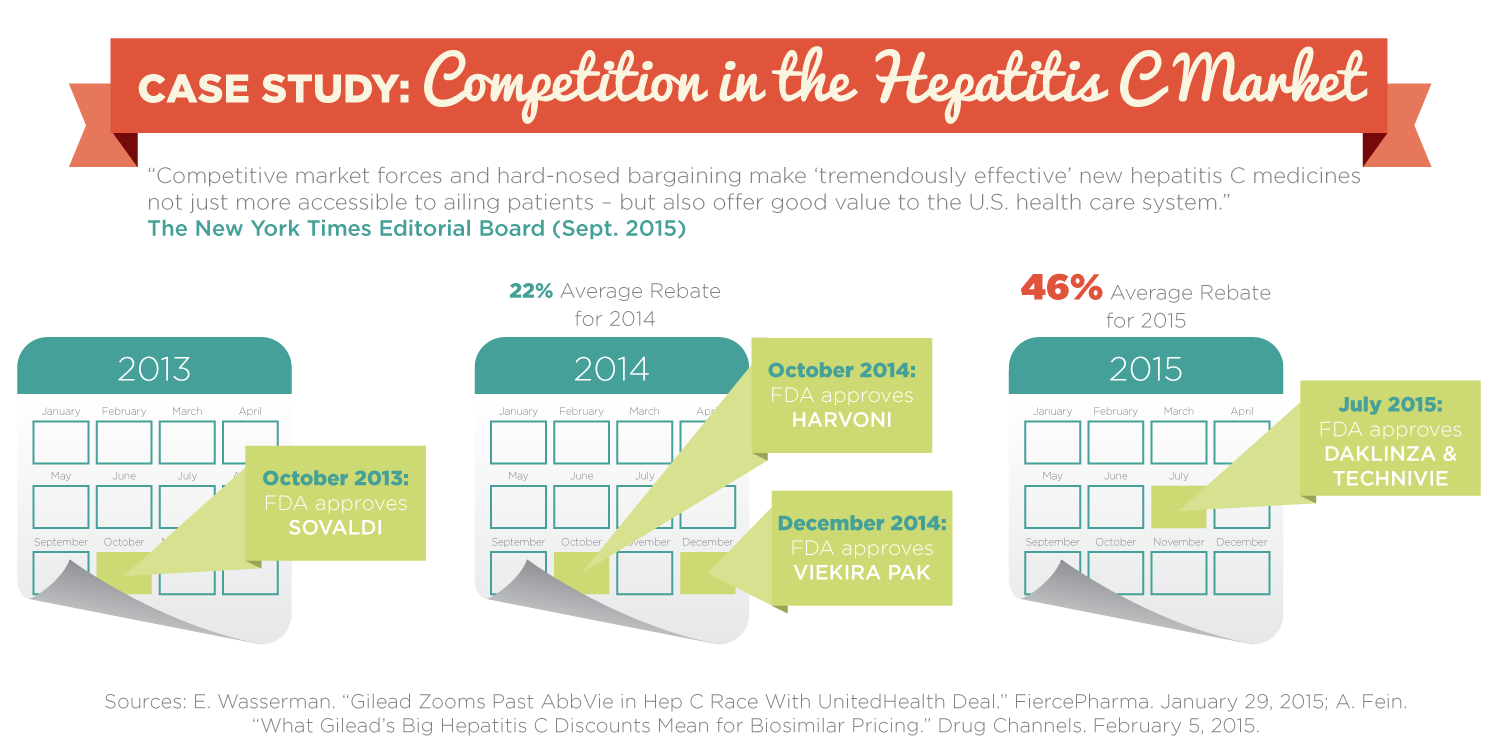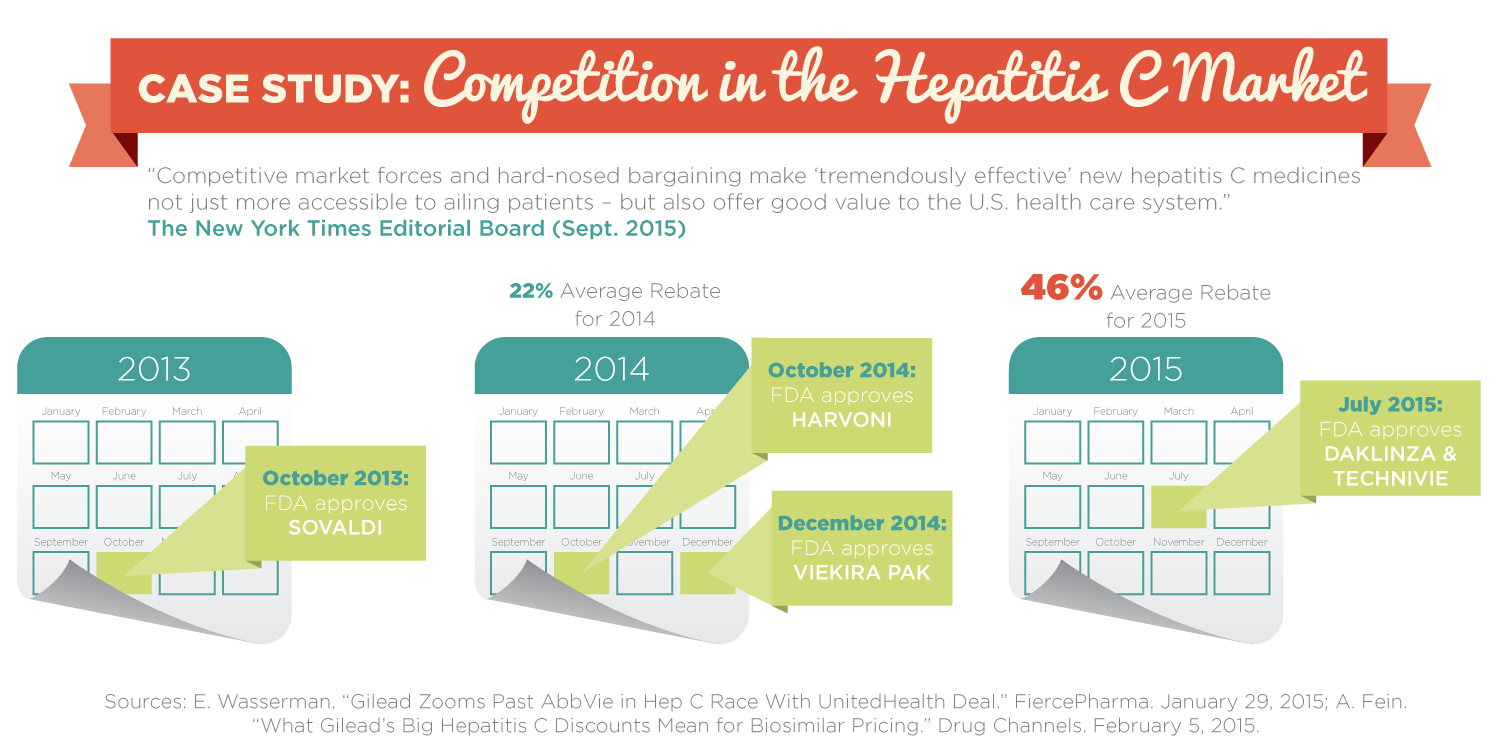Medicare Monday: New hepatitis C treatments in Medicare
Failing to eliminate hepatitis C today will result in an estimated $30B in Medicare over next decade. Learn more!

Medicare Monday: New hepatitis C treatments in Medicare.
Failing to eliminate hepatitis C today will result in an estimated $30B in Medicare over next decade. Learn more!

Medicare Monday: New hepatitis C treatments in Medicare.
 America’s innovative biopharmaceutical companies are committed to researching and developing treatments that help patients live longer, healthier lives. In recent years new treatments for hepatitis C have been ground breaking, with cure rates upwards of 90 percent. These new and forthcoming hepatitis C treatments represent a remarkable advance against a very serious disease, and provide tremendous value to patients and society. So what do these new treatments mean for Medicare?
America’s innovative biopharmaceutical companies are committed to researching and developing treatments that help patients live longer, healthier lives. In recent years new treatments for hepatitis C have been ground breaking, with cure rates upwards of 90 percent. These new and forthcoming hepatitis C treatments represent a remarkable advance against a very serious disease, and provide tremendous value to patients and society. So what do these new treatments mean for Medicare?
Some critics have made false claims that these treatments are driving unsustainable cost growth in Medicare Part D. However, such claims ignore how Part D works to encourage competition and promote patient access to medical advances. Treatments for hepatitis C have evolved over time with multiple cures coming on the market in the last couple of years. Competition between treatments generates savings for a variety of payers, including Medicare, with average rebates for some hepatitis C products increasing from about 22 percent in 2014 to about 46 percent in 2015. Overall, average rebate levels in Part D are substantial and have increased each year of the program.

We talked recently about Part D premiums – which, on average, have been relatively stable since 2011 and nearly half of original projections. A recent analysis from Milliman found that while the trend for hepatitis C treatments in Part D has increased in recent years and is expected to continue in 2016, in the aggregate, manufacturer rebates and contracting improvements will more than offset the increased trend next year. This demonstrates the success of Part D’s competitive structure in working to control costs while providing beneficiaries with access to these important treatment options.
Further, according to researchers at Harvard University and CVS Health, new hepatitis C therapies may generate long-run cost savings for the health care system. Additional research suggests failing to eliminate hepatitis C today will result in an estimated $115 billion more in health care spending over the next decade – including more than $30 billion in Medicare.
Treating – and curing – diseases is the mission of our industry and the competitive market in Medicare Part D helps patients access the treatments they need.
For more on Medicare follow Medicare Monday and to learn more about how innovative biopharmaceutical companies are developing new cures for the future, visit FromHopetoCures.org.